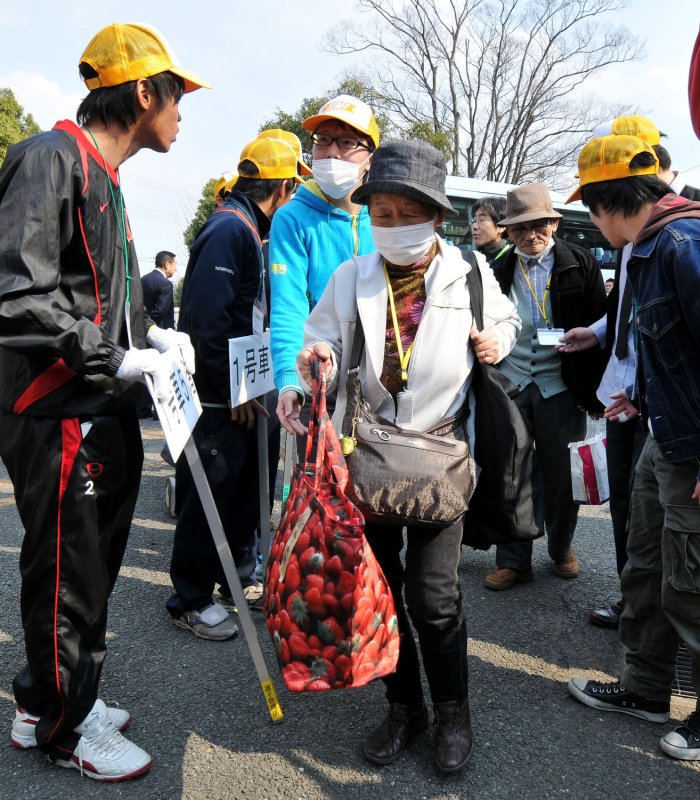Earthquake victims arrive at the closed former Kisai high school in Kazo, Saitama prefecture, on March 30, 2011. Futaba-cho of Fukushima prefecture near the earthquake temporarily moved their offices and escape facility to this high school. UPI/Keizo Mori |
License Photo
TOKYO, April 1 (UPI) -- Workers repeatedly exposed to high radiation while trying to avert a nuclear disaster in Japan expect to die for their efforts, a team member's mother said.
The so-called "Fukushima 50," a group of about 300 technicians, soldiers and firemen who work in shifts of 50 at the earthquake-crippled Fukushima Daiichi nuclear power plant, have discussed their situation and realize death is strongly possible, the mother of one of the workers told The Daily Telegraph of London.
"My son and his colleagues have discussed it at length and they have committed themselves to die if necessary in the long term," she said in an interview published Thursday.
French President Nicolas Sarkozy, the first foreign leader to visit Japan since the March 11, 9-magnitude earthquake and tsunami devastated the country, said the world needed global safety standards on nuclear power by the end of the year.
"We must address this anomaly that there are no international safety norms for nuclear matters," Sarkozy said. "We need international safety standards before the end of the year."
He said nuclear issues would be a key topic during a May meeting of Group of Eight ministers in France. Sarkozy, who leads the G8 and Group of 20 organization this year, said he would call a meeting of the G20's nuclear power watchdogs to discuss safety regulations.
Meanwhile, Japan asked trading partners at the World Trade Organization not to "overact" by unnecessarily restricting food imports over fears of contamination. A number of international food companies have banned Japanese products based on those fears, despite government assurances of safety.
The earthquake and the tsunami it spawned left 27,000 people killed or missing, a quarter of a million people homeless and critically damaged the nuclear plant in northeastern Japan.















